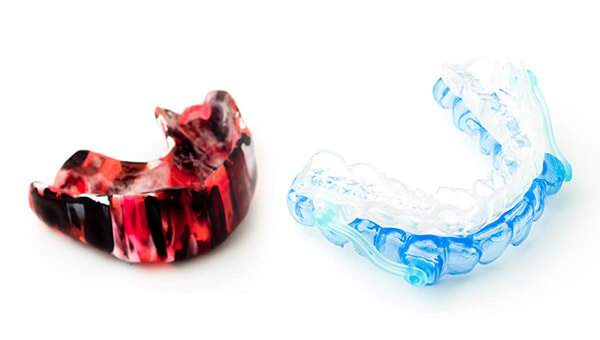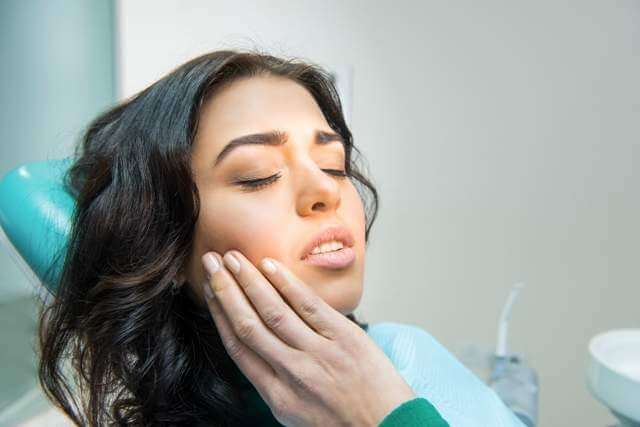What Is Teeth Grinding and Why Is Teeth Grinding Harmful?
Grinding or clenching your teeth, officially known as bruxism, affects roughly one in three adults, and surprisingly, it can happen irrespective of you are asleep or awake. Unfortunately, many people aren’t even aware they have this habit until a loved one notices the sound or a dental professional detects the damage.
Teeth Grinding is a condition in which you gnash or clench your teeth. If you subconsciously find yourself clenching your jaw all day or waking up with sensitive teeth, jaw pain, or a headache, you may be experiencing bruxism or grinding, clenching, or grinding your teeth. Grinding teeth regularly is usually caused by stress, fear, tension, or even concentration. Indigestion during sleep is sometimes associated with hyperactivity, sleep apnea, or acid reflux and can occur as an aftereffect of medications used to treat depression. This often leads to cosmetic problems where the teeth shorten and deform. Other issues include sensitive teeth, muscle tension, muscle fatigue, headaches, and earaches.
What are the after effects of teeth grinding?

- Headaches
- Pain in face, jaw, and ears
- Flattening of teeth or loose and painful teeth
- Cracked, damaged, or fractured teeth
- Breakage of fillings and crowns
- Possibility of dentures to wear out much faster than normal
What Can I Do to Stop Grinding My Teeth?

Teeth grinding is can be treated in multiple ways. The key to successful treatment is to figure out what is causing you to hone your teeth and then target your treatment to the cause. Below are some easy to possible treatments for teeth grinding.
- Night guards and Splints: Night guards are a kind of dental splint that may be helpful for teeth grinding. They work by protecting your teeth and preventing them from grinding while you sleep. Mouthpieces can be ordered at the dentist’s office or purchased over the counter (OTC). Such night guards may not be as effective as those made specifically for heavy teeth, but their low cost can make them an attractive and applicable solution for people with smaller teeth. Some specially made mouth guards may treat teeth grinding and sleep apnea.
- Start exercising: Ideally, exercise can tackle both the causes and the effects of grinding your teeth. Most times, teeth grinding is often caused by stress, which manifests itself in subconscious teeth grinding. Exercise will help release stress and further help ease issues like density, depression, and anxiety. Exercises that reduce stress may help in some cases. Working out regularly can also benefit your overall health, so it’s a low-risk remedy.
- Relax before bed: You must completely destress the jaw before you go to bed. To ease the stress, it is essential to have a good night’s sleep. Spending some time doing deep breathing, yoga, massage, reading, listening to your favorite music, or taking a bath before going to bed can help you relax and have a better sleep which might help in reducing teeth grinding.
- Massage your jaw muscles: Jaw muscle exercises can help you alleviate the jaw and facial muscles. Further, it will also help to maintain proper alignment of the jaw. You can gently be massaging your jaw to loosen up the muscles. It is recommended to follow simple exercises such as:. Open your mouth wide while touching the tongue to your front teeth. .Next, say the letter “N” out loud. This helps relax the jaw and keep your top and bottom teeth from touching and help you avoid clenching.
- Become conscious of clenching: You may grind your teeth perpetually and not realize it. It is helpful to practice cognizance several times a day to help you relax and ease the anxiety. In no time, you will start noticing scenarios when your teeth grinding gets more distinct and pronounced. When you identify it is occurring, end it by loosening your jaw and for a moment. Next, move it gently and try to maintain a more relaxed jaw position.
- Train yourself: You can try habit-reversal techniques to break your grinding habits. Specially trained therapists use Habit-reversal methods. Knowing how often you grind your teeth will make it easier to break the habit. If you find yourself grinding teeth during the day, hold your tongue between your jaws. This will relax your jaw and eventually reduce your habit.
Teeth grinding is a common condition with innumerable causes. To avoid any dental problems, it is essential to regularly go for dental check-ups to prevent further damage. If your grinding is due to a misaligned, cracked, crooked, or missing tooth, it can be corrected with crowns or overlays.
These treatments help by reshaping the chewing surface to help you to stop grinding. Additionally, if you suspect you suffer from teeth grinding at night, keep track of symptoms and talk to your dentist. Treating it early is vital to avoid significant dental complications.
Author Bio:
Dr. Anu Isaac, DMD the best dentist in salem ma, runs a Coral Dental Care a successful dentistry. Dr. Isaac strives for quality on a daily basis and this commitment to quality is reflected in her constant pursuit of advanced training. Her firm belief that even experts need to stay updated about what’s new in the dental field, enables her to provide every patient with optimal oral care. As the founder of Coral Dental Care, she is dedicated to creating healthy, beautiful smiles for her patients and also to educating dental and non-dental community with her engaging articles on all things related to oral health, recent dental innovations, and latest treatment modalities.
Reference:
- https://www.mayoclinic.org/diseases-conditions/bruxism/diagnosis-treatment/drc-20356100
- https://www.webmd.com/oral-health/guide/teeth-grinding-bruxism
- https://www.healthline.com/health/how-to-stop-grinding-teeth
- https://www.209nycdental.com/7-ways-to-stop-grinding-your-teeth/
Image Source: https://www.coraldentalcare.com/wp-content/uploads/2017/09/Night-Guard.jpg
